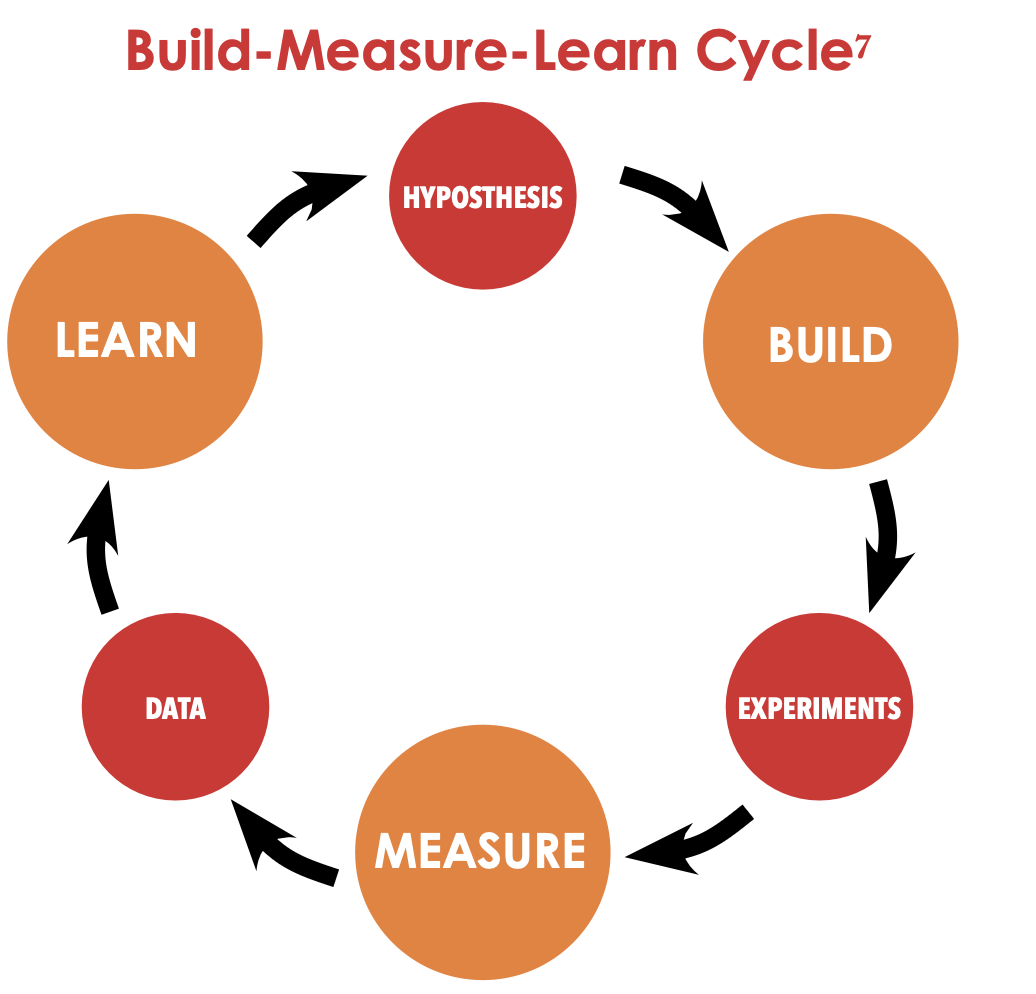
This guest blog post is by Elizabeth Weaver Engel, MA, CAE, Chief Strategist, Spark Consulting, and Jamie Notter, Culture Scientist.
Association executives are always on the lookout for good ideas for new programs, products, and services that will add value for our members and other audiences, and once we think we have one, we want to build it as quickly and efficiently as possible.
Lean startup methodology provides a good way to do that, using a structured, evidence-based process to ensure you’ve identified the right audience, discovered a real and significant problem they need help solving, and are proposing a solution that will work for them, at a price they’re willing to pay.
In fact, many organizations have been experimenting with lean startup concepts like the Lean Canvas, the Build-Measure-Learn Cycle, the Minimum Viable Product, Metrics That Matter, and the Pivot.
Unfortunately, these tools and concepts often don’t seem to work nearly as well in reality as they do in all those ubiquitous case studies and stories of lean startup magic.
Why?
You want to do lean startup, but your culture doesn’t.
After a decade of working with lean startup, one of the main things we’ve learned is that it’s not the concepts, tools, and techniques that are the hard part – with a little time and effort, your team can learn them and become proficient. The hard part is the culture change, specifically related to:
- Innovation practices: your culture values the concepts of innovation but struggles with the actual practices of innovation.
- Effective action: your culture is unable to move quickly while concurrently monitoring outcomes to ensure you maintain quality.
- Organizational clarity: your culture blocks access to the flexible structure, collaboration tools, and shared understanding of strategy your team needs to be successful.
- Difficult conversations: your culture doesn’t value the behaviors that support effective conflict resolution.
How can you address those culture patterns and elements and consciously create the culture that will support change readiness, allowing you to build a strong foundation on which to construct your lean startup practice?
That’s the main question we address in our recently-released whitepaper, Lean at 10: Culture Eats Methodology for Lunch.
The monograph also features:
- Case studies with the American Association of Veterinary State Boards, the National Council of Architectural Registration Boards, and the National Registry of Emergency Medical Technicians.
- A sidebar of lean startup methodology tools.
- A series of thought questions for you to use to spark discussion with your team.
- An extensive list of resources in case you want to dig deeper on any of the topics addressed.
Download your free copy at https://bit.ly/LeanAt10.
--
Additional Related Blog Posts to Check Out:
- Lean at 10: Culture Eats Methodology for Lunch
- Walking Your Talk on Innovation
- Are You Lean-Curious?
- Lean at 10: Lessons Learned


